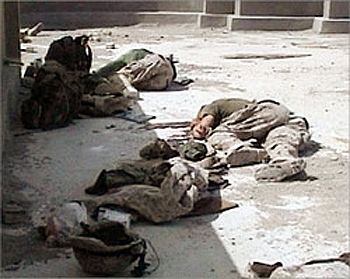
The Elders' View Of the Middle East
By Jimmy Carter
Sunday, September 6, 2009
During the past 16 months I have visited the Middle East four times and met with leaders in Israel, Egypt, Lebanon, Saudi Arabia, Jordan, Syria, the West Bank and Gaza. I was in Damascus when President Obama made his historic speech in Cairo, which raised high hopes among the more-optimistic Israelis and Palestinians, who recognize that his insistence on a total freeze of settlement expansion is the key to any acceptable peace agreement or any positive responses toward Israel from Arab nations.
Late last month I traveled to the region with a group of "Elders," including Archbishop Desmond Tutu, former presidents Fernando Henrique Cardoso of Brazil and Mary Robinson of Ireland, former prime minister Gro Brundtland of Norway and women's activist Ela Bhatt of India. Three of us had previously visited Gaza, which is now a walled-in ghetto inhabited by 1.6 million Palestinians, 1.1 million of whom are refugees from Israel and the West Bank and receive basic humanitarian assistance from the United Nations Relief and Works Agency. Israel prevents any cement, lumber, seeds, fertilizer and hundreds of other needed materials from entering through Gaza's gates. Some additional goods from Egypt reach Gaza through underground tunnels. Gazans cannot produce their own food nor repair schools, hospitals, business establishments or the 50,000 homes that were destroyed or heavily damaged by Israel's assault last January.
We found a growing sense of concern and despair among those who observe, as we did, that settlement expansion is continuing apace, rapidly encroaching into Palestinian villages, hilltops, grazing lands, farming areas and olive groves. There are more than 200 of these settlements in the West Bank.
An even more disturbing expansion is taking place in Palestinian East Jerusalem. Three months ago I visited a family who had lived for four generations in their small, recently condemned home. They were laboring to destroy it themselves to avoid much higher costs if Israeli contractors carried out the demolition order. On Aug. 27, we Elders took a gift of food to 18 members of the Hanoun family, recently evicted from their home of 65 years. The Hanouns, including six children, are living on the street, while Israeli settlers have moved into their confiscated dwelling.
Daily, headlines in Jerusalem newspapers say that certain areas and types of construction would be excluded from the settlement freeze and that it would, at best, have a limited duration. Increasingly desperate Palestinians see little prospect of their plight being alleviated; political, business and academic leaders are making contingency plans should President Obama's efforts fail.
We saw considerable interest in a call by Javier Solana, secretary general of the Council of the European Union, for the United Nations to endorse the two-state solution, which already has the firm commitment of the U.S. government and the other members of the "Quartet" (Russia and the United Nations). Solana proposes that the United Nations recognize the pre-1967 border between Israel and Palestine, and deal with the fate of Palestinian refugees and how Jerusalem would be shared. Palestine would become a full U.N. member and enjoy diplomatic relations with other nations, many of which would be eager to respond. Palestinian Prime Minister Salam Fayyad described to us his unilateral plan for Palestine to become an independent state.
A more likely alternative to the present debacle is one state, which is obviously the goal of Israeli leaders who insist on colonizing the West Bank and East Jerusalem. A majority of the Palestinian leaders with whom we met are seriously considering acceptance of one state, between the Jordan River and the Mediterranean Sea. By renouncing the dream of an independent Palestine, they would become fellow citizens with their Jewish neighbors and then demand equal rights within a democracy. In this nonviolent civil rights struggle, their examples would be Mahatma Gandhi, Martin Luther King Jr. and Nelson Mandela.
They are aware of demographic trends. Non-Jews are already a slight majority of total citizens in this area, and within a few years Arabs will constitute a clear majority.
A two-state solution is clearly preferable and has been embraced at the grass roots.
Just south of Jerusalem, the Palestinian residents of Wadi Fukin and the nearby Israeli villagers of Tzur Hadassah are working together closely to protect their small shared valley from the ravages of rock spill, sewage and further loss of land from a huge settlement on the cliff above, where 26,000 Israelis are rapidly expanding their confiscated area. It was heartwarming to see the international harmony with which the villagers face common challenges and opportunities.
There are 25 similar cross-border partnerships between Israelis and their Palestinian neighbors. The best alternative for the future is a negotiated peace agreement, so that the example of Wadi Fukin and Tzur Hadassah can prevail along a peaceful border between two sovereign nations.
The writer was the 39th president. He founded The Carter Center, a nongovernmental organization focused on global peace and health issues.




















